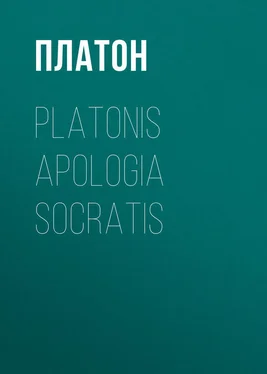PROPOSITIO
Primum igitur aequum est, Athenienses, me ad prima quae in me iacta sunt mendacia et primis accusatoribus respondere; deinde ad posteriora et posterioribus. Mihi enim apud vos multi exstiterunt accusatores, qui iam pridem multos per annos et nihil veri dixerunt; quos ego magis metuo quam Anytum eiusque socios, quamvis etiam hi sint graves. Verum illi sunt graviores, qui vestrum plerisque a pueritia acceptis persuadebant rem, quam crimini mihi darent, falsissimam: esse quendam Socratem, virum sapientem, qui et coelestia curet, et quae sub terra sint omnia perquisierit, causamque inferiorem efficiat superiorem. Hi quod eam famam sparserunt, Athenienses, graves illi sunt accusatores mei. Nam qui audiunt, putant eos, qui talia quaerant, ne deos quidem esse statuere. Deinde accusatores hi sunt numero multi, et longo iam tempore me accusarunt; tum etiam ea aetate vobis haec dicebant, qua maxime credere possetis, quum vos partim pueri essetis et adolescentuli, absentemque accusabant, prorsus nemine causam dicente. Sed quod omnium absurdissimum est, ne nomina quidem eorum licet scire aut dicere, praeterquam si quis poeta inter eos est comicus. Quicumque autem invidia moti et calumnia usi sollicitabant vos, et quod sibimet ipsis persuasum erat, aliis persuadebant, hi omnes longe difficillimi sunt. Neque enim huc producere licet eorum quemquam, nec redarguere; sed necesse est prorsus ut quasi cum larvis pugnem et dicendo et redarguendo, respondente nemine. Itaque etiam vos existimate, ut ego aio, duplices mihi accusatores exstitisse; alteros, qui modo accusarunt; alteros, qui iam pridem, quos dixi: ac putate mihi faciendum ut adversus illos veteres me primum defendam. Nam et vos illis prius accusantibus aures praebuistis, multoque magis quam his posterioribus. Age vero, respondendum nunc est, Athenienses, atque enitendum, ut invidia, quam vos longo tempore conceptam habetis, ea vobis eximatur tam brevi tempore. Velim igitur hoc ita fieri, si quid expediat et vobis et mihi, et respondendo me quippiam proficere: sed arbitror id difficile esse, minimeque me latet, qualis sit rei conditio. Verum tamen hoc ita esto, uti deo placet; legi quidem parendum est et causa dicenda.
CONFUTATIO, i
Itaque repetamus a principio, quae illa accusatio sit, unde exorta est infamia mea; cui iam etiam fidem habens Melitus, hanc mihi actionem intendit. Age vero, quidnam, quod crimini mihi darent, dicebant criminatores? Velut accusatorum enim nobis recitanda est iurata formula ipsorum: Socrates iniuste curioseque facit, quod inquirit quae sub terra sunt et quae in coelo, et causam inferiorem efficit superiorem, aliosque eadem docet.
Конец ознакомительного фрагмента.
Текст предоставлен ООО «ЛитРес».
Прочитайте эту книгу целиком, купив полную легальную версию на ЛитРес.
Безопасно оплатить книгу можно банковской картой Visa, MasterCard, Maestro, со счета мобильного телефона, с платежного терминала, в салоне МТС или Связной, через PayPal, WebMoney, Яндекс.Деньги, QIWI Кошелек, бонусными картами или другим удобным Вам способом.
"SOCRATES: A young man who is little known, Euthyphro; and I hardly know him: his name is Meletus, and he is of the deme of Pitthis. Perhaps you may remember his appearance; he has a beak, and long straight hair, and a beard which is ill grown." (Project Gutenberg-text 1642)
"EUTHYPHRO: Why have you left the Lyceum, Socrates? and what are you doing in the Porch of the King Archon? Surely you cannot be concerned in a suit before the King, like myself?" (Project Gutenberg-text 1642)
"a bad tragic poet".
See Frohberger's note on Lysias, Vol. I. p. 160.
Meno 91 B: "SOCRATES: You surely know, do you not, Anytus, that these are the people whom mankind call Sophists?
ANYTUS: By Heracles, Socrates, forbear! I only hope that no friend or kinsman or acquaintance of mine, whether citizen or stranger, will ever be so mad as to allow himself to be corrupted by them; for they are a manifest pest and corrupting influence to those who have to do with them." (Project Gutenberg-text 1643)
"a public speaker, pleader", Latin "orator" (Liddell and Scott, "An Intermediate Greek-English Lexikon. Oxford. Clarendon Press. 1889).
Wagner, p. 85: "Cf. also Gellius 3, 13, Callistratus Athenis orator in re publica fuit quos illi δημαγωγοὺς appellant. Lyco belonged no doubt to the same class as Callistratus."
"agôn timêtos": in such a case the law did not stipulate a specific penalty.
"a juryman of the court, a Heliast" (Liddell and Scott, 1889).
Wagner, p. 104: "Diogenes Laërtius 2, 41, agrees with our passage in stating that 281 judges pronounced Socr. guilty."
"an assessment of damage", Aeschin., etc. "a rating" or "assessment", Arist. (Liddell and Scott, 1889).









